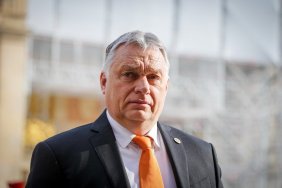Hungarian Prime Minister Viktor Orbán, in a recent interview with Hungarian National Radio, elaborated on his decision to support the allocation of a new 50 billion euro aid package to Ukraine from the EU budget, despite previous resistance.
Orbán emphasized that Hungary's hand was forced in this matter. He explained that if Budapest continued to exercise its right of veto and block the agreement, the other 26 member states of the European Union would have proceeded to send aid to Ukraine, including funds earmarked for Hungary itself. "How would that make it better?" Orbán questioned, underscoring the pragmatic necessity of Hungary's stance.
During the interview, Orbán reiterated Hungary's stance of not supplying weapons to Ukraine. Instead, he claimed Budapest channeled funds from Brussels to support Ukraine's civilian needs. He reiterated the call for peace talks between Kyiv and Moscow, stressing that the time for such negotiations is pressing, with time "now working for Russia."
The breakthrough came on February 1, when EU leaders, during an emergency summit in Brussels, unanimously agreed to allocate 50 billion euros to Ukraine.
The aid package primarily concerns the allocation of financial support to Ukraine from the EU budget. Of the total amount, 17 billion euros will be provided as direct aid, while the remaining 33 billion will be disbursed to Kyiv in the form of credits over the next four years.






